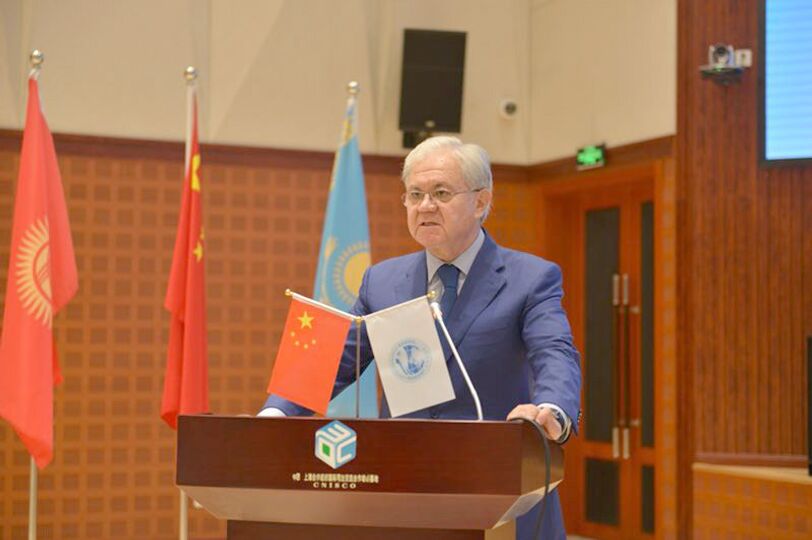On 18 September 2018, SCO Secretary-General Rashid Alimov addressed students of counter-terrorism courses, organised at the SCO centre for legal training and cooperation and the Shanghai University of Political Science and Law.
Mr Alimov discussed the Organisation's counter-terrorism activities in detail and replied to numerous questions from the participants.
During his speech, Mr Alimov recalled that the Organisation had established a comprehensive regulatory and legal framework for expanding counter-terrorism cooperation between member states. At the same time, various methods for combating new international security threats continue to improve.
"This work is permanent, and new elements of a well-coordinated system for countering the terrorist evil are developed each year," Mr Alimov pointed out.
By way of an example, Mr Alimov mentioned "an innovative document of international cooperation," the SCO Convention on Countering Extremism that lists various concepts and creates legal grounds for joint efforts to combat extremism.
"Qingdao summit approved the SCO Member States Programme on Cooperation in Combating Terrorism, Separatism and Extremism for 2019-2021," he added.
"The SCO Regional Anti-Terrorist Structure (RATS) conducts comprehensive work," Mr Alimov said.
According to Mr Alimov, the SCO focuses on fighting cybercrime and coping with efforts to use the Internet for criminal and terrorist purposes, specifically, the spread of terrorist ideology and propaganda, including the public justification of terrorism for encouraging terrorist attacks.
Efforts to prevent the younger generation's involvement in such criminal activities are an important counter-terrorism measure. In this context, Mr Alimov drew attention to the initiative of SCO member states' leaders at the Qingdao summit. They called for pooling the international community's efforts and countering attempts to involve young people in the activities of terrorist, separatist and extremist groups. In their joint appeal to young people, they underscored an intention to launch comprehensive educational work within the SCO also aiming to ensure the spiritual and moral upbringing of the younger generation.
He also drew the attention of those present at the gathering to the problem of illegal drug trafficking which is becoming a source of funding for terrorist groups ever more frequently. In this connection, Mr Alimov noted that "the SCO unites countries that boast a tremendous potential and real capabilities for shielding Eurasia from the narcotic drugs aggression."
According to Mr Alimov, expanded international counter-terrorism cooperation has important applied significance, and the SCO also focuses on this aspect. "We have established close practical cooperation with the CSTO, the CIS Anti-Terrorism Centre and specialised UN agencies, including the UN Security Council's Office of Counter-Terrorism and the Counter-Terrorism Committee, the Interpol as well as the OSCE," Mr Alimov said.
"On the whole, comprehensive counter-terrorism work has been and remains a key priority of CIS activities. SCO member states agree on zero tolerance policies towards any acts of terrorism and extremism: they cannot be justified in any way. In this connection, SCO heads of state have suggested establishing a common global anti-terrorist front, with the UN playing a central coordinating role; this front would function in line with international law and without any politicisation or double standards. This comprehensive task calls for consistent and focused efforts," Mr Alimov concluded.
